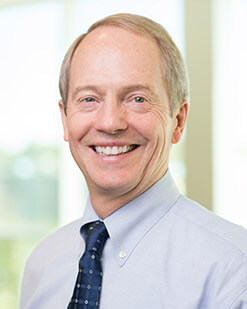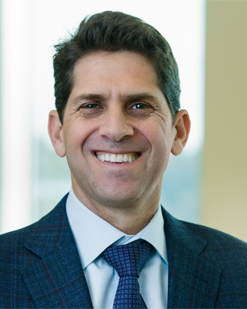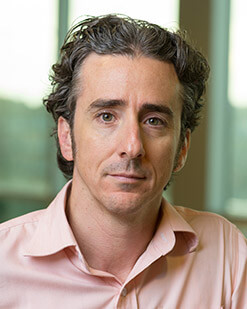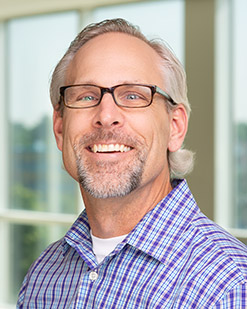What is LAM?
This information was reviewed and approved by Gregory P. Downey, MD, FRCPC (2/1/2023).
- Do not delete this
What is Lymphangioleiomyomatosis?
Lymphangioleiomyomatosis (pronounced lim-fan-gee-o-ly-o-my-o-ma-to-sis), or LAM, is a rare condition found almost exclusively in women of all races and ethnicities. LAM is most often diagnosed in women who are between 30 to 70 years old. The disease is characterized by abnormal growth of smooth muscles cells, driven by mutations in tuberous sclerosis complex (TSC) genes. Although considered a rare lung disease, recent studies suggest the prevalence is higher than prior estimates. It is one of 200 types of interstitial lung disease.
Types of Lymphangioleiomyomatosis:
- Sporadic LAM: This type is caused by changes to the TSC1 and the TSC2 genes that are restricted to specific LAM cells. These genes make proteins that suppress tumors and regulate cell growth.
- Tuberculosis sclerosis LAM: This form of LAM occurs with an inherited syndrome, tuberculosis sclerosis complex, which causes numerous noncancerous tumors to grow in the skin, brain, kidneys, heart and other organs. It may cause developmental problems or seizures. Tuberculosis sclerosis also is caused by changes in the TSC1 and TSC2 genes and affects many cells and organs in the body, including sperm and eggs. This means it can be transmitted to children of affected patients.
Lymphangioleiomyomatosis is a condition that, if untreated, often worsens breathing over time. While there is no cure, advances in research and treatments now help manage symptoms and reduce complications, and care can be tailored for each patient.
Signs and Symptoms
Lymphangioleiomyomatosis can affect the lungs, kidneys and the lymphatic system. The lymphatic system is made up of the lymph nodes and lymphatic vessels. It functions like a drainage system to maintain balance body fluids. It also produces, stores and carries white blood cells to fight infections and diseases.
Women with LAM may first notice symptoms in their 30s. Abnormal growth of LAM cells in the lungs leads to cysts in the lungs and destroys normal lung tissue. Milky fluid may gather around the lungs, which makes it hard for oxygen to move from the lungs to other areas of the body.
Signs of Lymphangioleiomyomatosis
- Breathing difficulty
- Chest pain
- Chronic coughing (sometimes with phlegm or blood)
- Collapsed lung
- Benign kidney tumor (present in about 40 percent of people with LAM)
Diagnosis
Lymphangioleiomyomatosis is a rare lung condition and is difficult to diagnose. Some symptoms of LAM are similar to more common illnesses such as asthma and bronchitis. Women may not immediately realize they have symptoms of LAM. To diagnose lymphangioleiomyomatosis, your doctor may conduct a variety of tests.
Breathing and Exercise Tests
Lung function testing: This measures how much air you can inhale and exhale within a specific time frame. The test shows if your lungs are functioning normally or if there is an abnormality.
Imaging Tests
Chest X-ray: An x-ray of the chestshows a collapsed lung or fluid in the lung cavity.
High-Resolution Computed Tomography (HRCT) scan: HRCT scans are the most accurate and noninvasive to detect lung cysts compatible with LAM, check for fluid around the lungs and find LAM-related kidney tumors.
Procedures
Bronchoscopy: A scope is inserted into the nose and down through the trachea to look inside the lungs and airways. A tissue sample may be taken for a biopsy.
Lung biopsy: A thoracoscopy or thoracotomy collects tissue from the lung for evaluation.
Treatment
Lymphangioleiomyomatosis does not have a cure, but it can be effectively treated to manage symptoms and prevent complications.
Medications
Sirolimus (rapamycin or Rapamune®): The first drug to receive FDA approval to treat LAM which acts to slow the abnormal growth of LAM cells. Sirolimus can improve breathing, slow lung damage and stabilize lung function, which improves quality of life in patients with moderate to severe LAM.
Everolimus (Afinitor): While not FDA approved, this drug has been effective in improving breathing and slowing lung damage in clinical trials.
Inhaled bronchodilators: This medication open the airways by relaxing the smooth muscles around the airways to improve breathing.
Oxygen Therapy
This treatment helps people with chronic lung disease normalize the oxygen level in the blood during sleep, rest, activity and during acute illness. Oxygen therapy decreases shortness of breath when you are active, allowing you to do more.
Supplements
Osteoporosis can be associated with LAM, so vitamin D and calcium may be recommended to prevent bone loss.
Lifestyle Management
Leading a full life with lymphangioleiomyomatosis is possible when you get regular checkups, take your medication as prescribed and follow your treatment plan. Maintaining a healthy lifestyle through a balanced diet, exercise and coping with the emotional challenges of a chronic disease also is important. The LAM Foundation is a remarkable organization that provides support and education for patients with LAM and their families.
LAM Clinical Trials
Clinical trials help determine new treatment options for diseases and conditions. Patients with lymphangioleiomyomatosis have access to clinical trials and should speak with their doctor to determine what trials might work best for them.
See a Specialist
If you or a loved one has symptoms of or a family history of lymphangioleiomyomatosis, it’s important to be evaluated by an interstitial lung disease specialist.
National Jewish Health in Denver, Colorado, has one of the world’s leading Interstitial Lung Disease programs. Learn more about our program or use the button below to make an appointment.
Our Specialists
-

Gregory P. Downey, MD, FRCPC
-

Matthew Koslow, MD
-

Joshua J. Solomon, MD
-

Jeff Swigris, DO, MS
 Programs and Services
Programs and Services
Thousands of patients come to us from around the world to team with our expert physicians and researchers and seek treatment for respiratory, cardiac, immune and related conditions. Search our treatment programs.
 Clinical Trials
Clinical Trials
For more than 100 years, National Jewish Health has been committed to finding new treatments and cures for diseases. Search our clinical trials.
